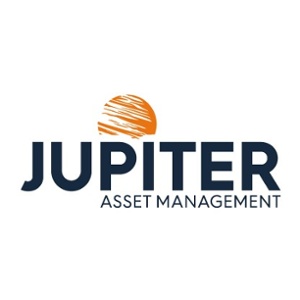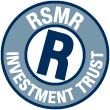


IT Growth Capital

The Chrysalis investment trust provides investors with access to the returns available from investing in later-stage, private companies with long-term growth potential, an investment class that has traditionally been difficult to access for individual investors.
The managers believe that later-stage, private companies offer opportunities to generate significant returns for investors and have built a concentrated portfolio of between 10 and 15 stocks selected for their potential to grow. These stocks may look to IPO in the short to medium term depending upon circumstances. The managers believe that their experience in managing both listed and unlisted equities will enable them to identify opportunities in this unlisted part of the market which are at an attractive stage of their development. Stocks which list on stock markets can continue to be held within the portfolio both for their continued growth potential and as a source of liquidity if needed.
The fund will sit under the IQEQ umbrella. Richard Watts and Nick Williamson are the appointed managers. They are supported by James Simpson Legal Council, Rebecca Whiting Director of Finance and Mike Stewart analyst.
The Company’s investment objective is to generate long-term capital growth through investing in a portfolio of equity or equity-related investments in unquoted companies.
Richard Watts and Nick Williamson are of the view that public markets are less used to valuing very high growth companies because they rarely have the opportunity to access them, especially in the UK stock market. Stock markets place greater focus on near-term prospects and typically focus on profitability, and so can be overly cautious on the longer-term potential of investments. This focus on near-term valuations means that companies with a high growth trajectory can often look expensive in the near-term.
The Company believes that later-stage, private companies with accelerating or very high growth can therefore appear unattractive to many investors when presented as potential public company listing candidates, despite being strong investment opportunities. This leads to opportunities for investors.
The managers have many years’ experience in the private UK small- and mid-cap market. Historically this has generated significant incoming enquiries from potential investee companies. In addition, industry events, word of mouth among entrepreneurs (which is proving to be a key channel) and a growing network of investment banks and other intermediaries have provided sourcing opportunities for the team.
The managers have participated in the later-stage funding rounds of several unlisted investee companies. The team targets businesses that are past the ‘concept’ phase and either have proved their business model or are well on their way to doing so. As a result, they represent a substantially lower investment risk than early funding round, private company investments.
Several of the trust’s holdings could be classified as ‘tech-enabled disruptors’. In the managers’ experience, these stocks can continue to grow quickly without an IPO as they approach breakeven or profitability, via their own cash flow reinvestment or via modest funding rounds. As a result, they tend to have a low capital intensity and have less need to raise primary capital. This means, in the team’s view, capital-lite business models adopted by certain private companies provide them flexibility around IPO timing.
The team look to identify opportunities for minority, private investments in companies displaying some or all of the following characteristics:
They conduct an analysis of each investment which involves the construction of multi-year financial forecasts to assess the trajectory of sales, profits and cash flows. This allows the managers’ assumptions to be stress tested and helps to assess likely future valuation multiples. Where appropriate, external due diligence will be employed to verify items such as financial, legal, regulatory or technology issues.
The team are aware of investing at appropriate valuations for unlisted stocks and that allowing for a liquidity discount is important. When looking at unquoted stocks the team look for above average earnings per share growth and re-rating potential. They do not invest in binary oil exploration or mining companies but look for businesses that are disrupters in the technology space.
The Company may incur debt up to a maximum of 20 per cent NAV.
The performance fee is 20% of absolute gains based on an NAV total return over a hurdle rate of 8% pa compound.
The Board is authorised to conduct share buybacks and also to use realised gains above book cost to reduce the discount of the shares to NAV.
The objective of the fund has always been to focus on innovative disruptive fast growing businesses with the potential for high returns. This is a very specialist investment vehicle, and any investment trust is subject to sharp movements in its share price versus its asset value. The job of the fund manager is to push companies to drive value and then to be patient for them to list on the stock market providing an exit mechanism. Over the longer term, if the companies deliver on profitability as expected, the fund should see its published asset value increase which would help reduce the level of discount.
The backdrop of the stabilisation in bond yields and peak interest rates means the headwinds long duration growth assets faced in recent years have dissipated and hopefully over time investor patience will be rewarded with a narrowing of discount and continued rise in NAV. There is now a defined strategy of using IPO’s/realisations for buybacks to narrow the discount. The future outcome for investors should now be driven more by company fundamentals and at a trading level most of the stocks are making progress. Investors should note disruptive businesses tend to be higher risk/reward than listed businesses by their nature.
Business
The Trust has transitioned to be managed in house by Chrysalis although importantly the investment team directly responsible for portfolio management has moved to Chrysalis from Jupiter. The managers will continue with the same investment process they utilised at Jupiter.
Team
This is an experienced team with a focus on investing in unquoted businesses.
Process
There is a focus on long-term bottom up analysis with the team look to identify opportunities for minority, private investments in companies displaying key characteristics.
Product
The fund managers have successfully identified relatively early stage disruptive businesses with the potential to grow into much larger listed businesses and the focus will continue to be identifying these opportunities and supporting their growth so they can eventually list on a stock market and provide an exit to investors.
Important Notice
This document is aimed at Investment Professionals only and should not be relied upon by Private Investors. Our comments and opinion are intended as general information only and do not constitute advice or recommendation. Information is sourced directly from fund managers and websites. Therefore, this information is as current as is available at the time of production.
Rayner Spencer Mills Research Limited is a limited company registered in England and Wales under Company. Registration Number 5227656. Registered Office: Number 20, Ryefield Business Park, Belton Road, Silsden, BD20 0EE. RSMR is a registered trademark.